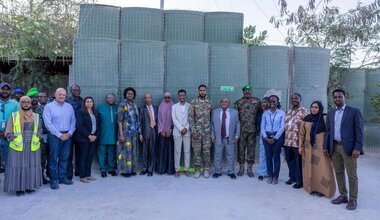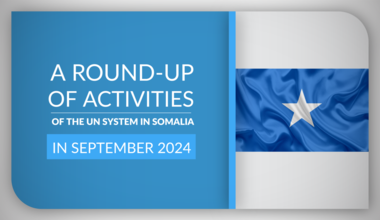UNSOS supports training to use drones to drop tree seeds
Baidoa - In a bid to boost efforts to tackle climate change and environmental degradation, the United Nations Support Office in Somalia (UNSOS) trained officials from South West State Ministry of Environment and Climate Change on the application of agricultural drone to disperse seeds balls.
The three-day specialised training, held in Baidoa, equipped the officials from the ministry of environment with practical skills and knowledge on using drones with precision to drop tree seeds in hard-to-reach areas.
Ms. Idil Muse, the technical advisor to South West State Minister of Environment and Climate Change said that the new skills acquired would greatly enhance the capacity of the ministry to implement large-scale reforestation projects and, she expressed gratitude to UNSOS for the noble initiative.
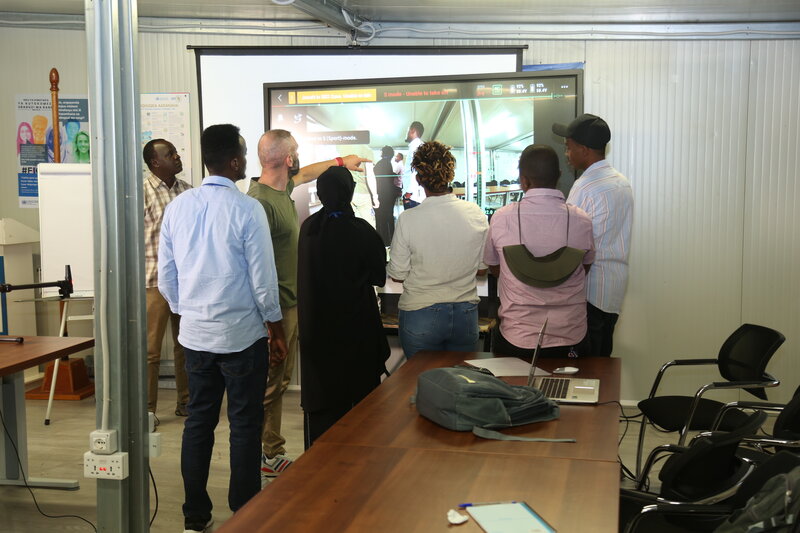
“The training has been impactful; we gained a lot from it,” said Mohamed Jama, UNSOS Environment Affairs officer who also attended the training.
“The use of drones to disperse seed balls enhance vegetation cover is a new thing to us. We know how climate change has affected Somalia and we’re happy to have acquired the new skills to make a difference in our communities,” added Mohamed.
Christine Wachira from UNSOS Field Technology Section (FTS), stated that previously, FTS trained on operations of Micro Unmanned Aerial Systems (MUAS) to enhance the operational effectiveness of the troops, and had now expanded the scope to support environmental initiatives.
The training, conducted by the Environment Unit, under the Office of the Director of Mission Support and Geographic Information System unit under FTS covered various aspects of drone operation, including flight planning, seed payload management, and maintenance.
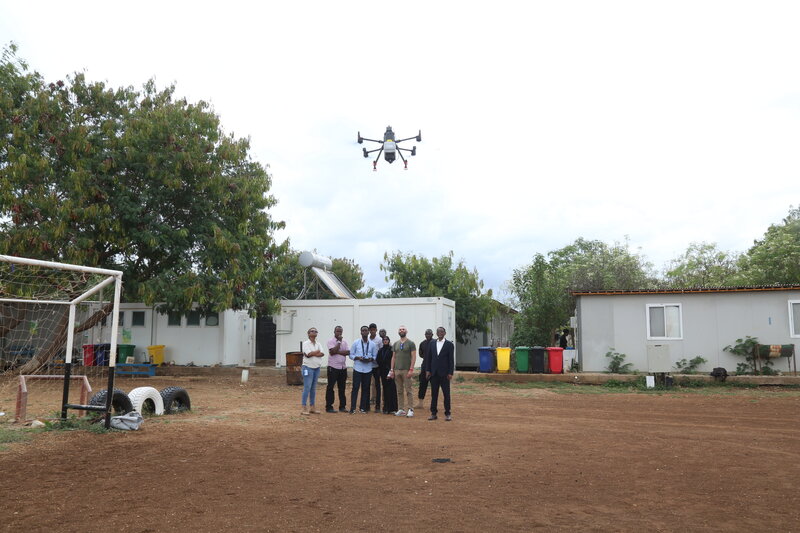
Participants had hands-on experience with the drones, as well as learning the safety protocols to ensure responsible and effective use of the technology.
According to Richard Oyoo, head of UNSOS’s Environment Unit, the use of drones for seed dispersal is expected to significantly boost the efficiency of reforestation efforts, which are often labor-intensive and time consuming when done manually.
“Due to the security situation in Somalia, we’ve had to devise innovative ways of planting trees and caring for the environment. We came up with this idea of using drones to drop seed balls in inaccessible areas,” said Dr Oyoo.
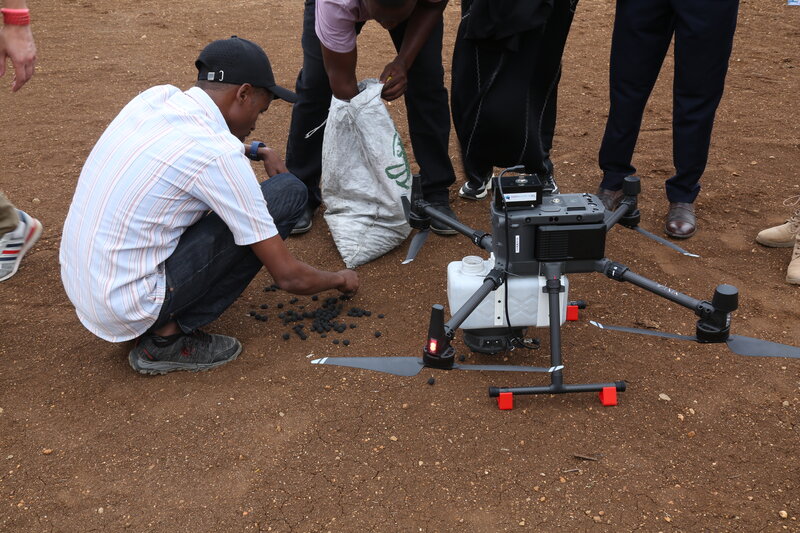
He emphasised the importance of using technology as part of the broader efforts of the United Nations in Somalia to mitigate their carbon footprint resulting from the operation of diesel generators and minimize the negative impact of its operations in Somalia by upscaling tree planting effort in addition to the renewable energy enhancement.”
Under the pilot programme, UNSOS will partner with South West State Ministry of Environment and Climate Change to use drones to disperse seed balls in vast, hard-to-reach areas.
This method also allows for the dispersal of a variety of seeds, promoting biodiversity and the regeneration of vegetation cover and other plant species,” explained Dr Oyoo.
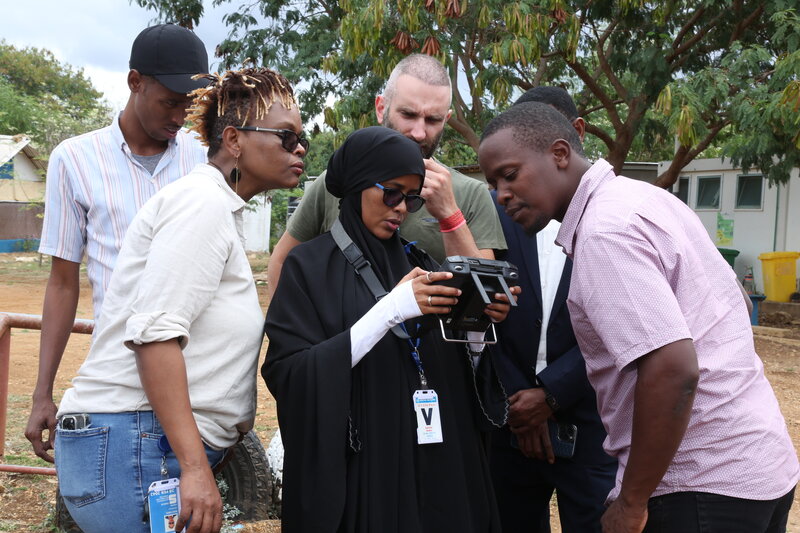
The seed balls are coated with charcoal mixed with fertilizer. The charcoal coating prevents the seeds from being eaten by insects and birds. When the seed balls are dropped in the target area, upon exposure to rain, the charcoal coating is washed away exposing the seeds for growth.
Diini Abdinur Mohamed, South West State Minister of Environment and Climate Change, emphasised the importance of incorporating technology into environmental conservation initiatives, particularly in Somalia.
“South West is one of the regions adversely affected by climate change. Being part of this innovative drone training, which will eventually be used to plant trees to boost our vegetation cover is immense to say the least,” stated the minister.
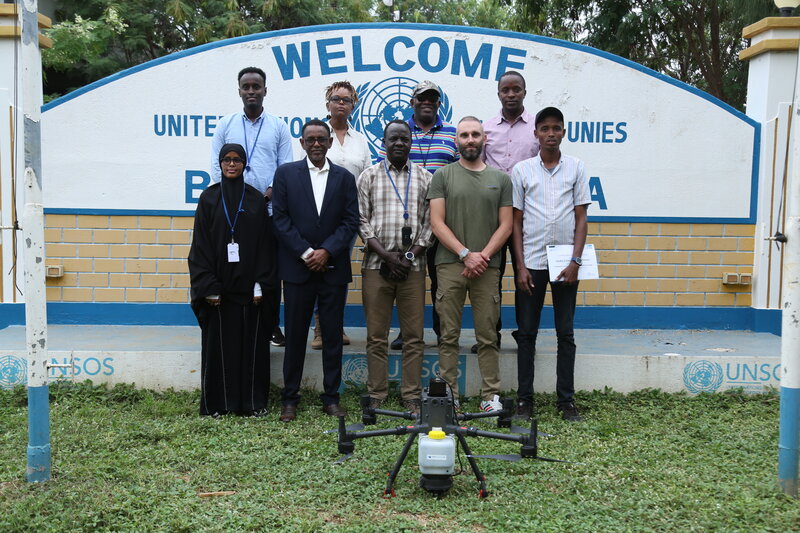
 UN
UN



